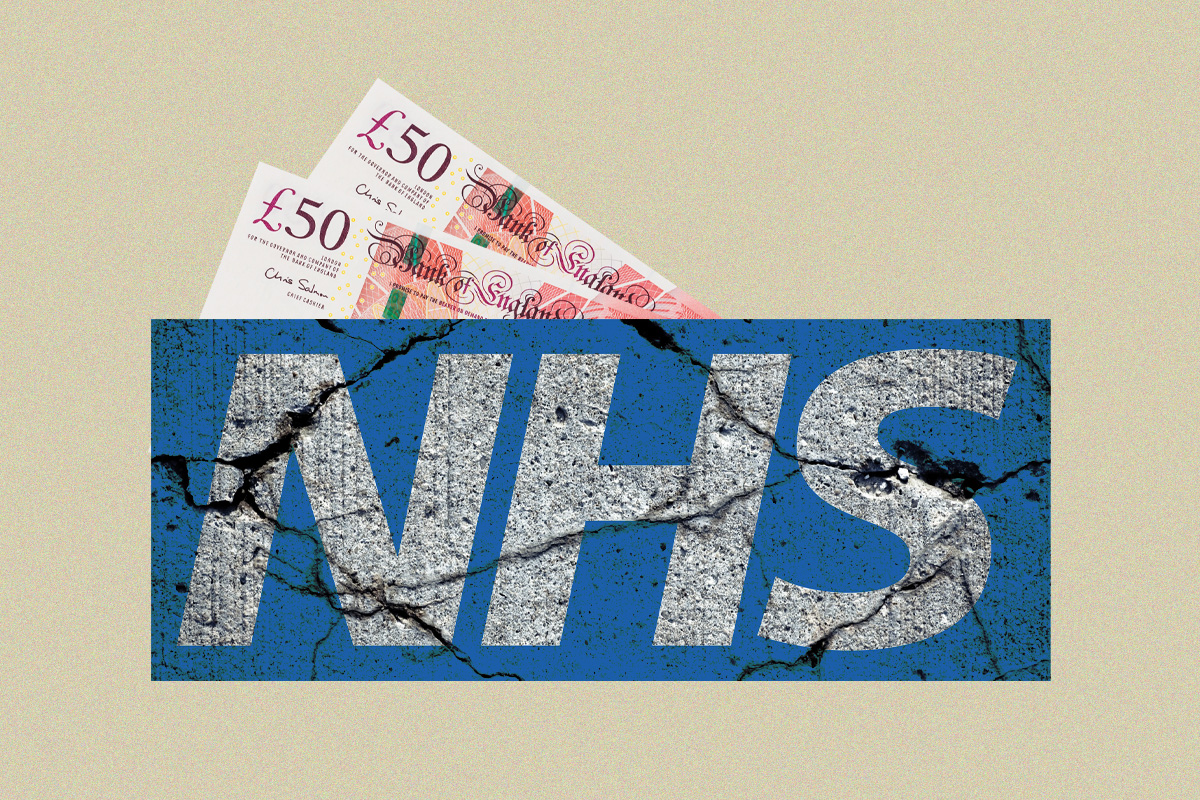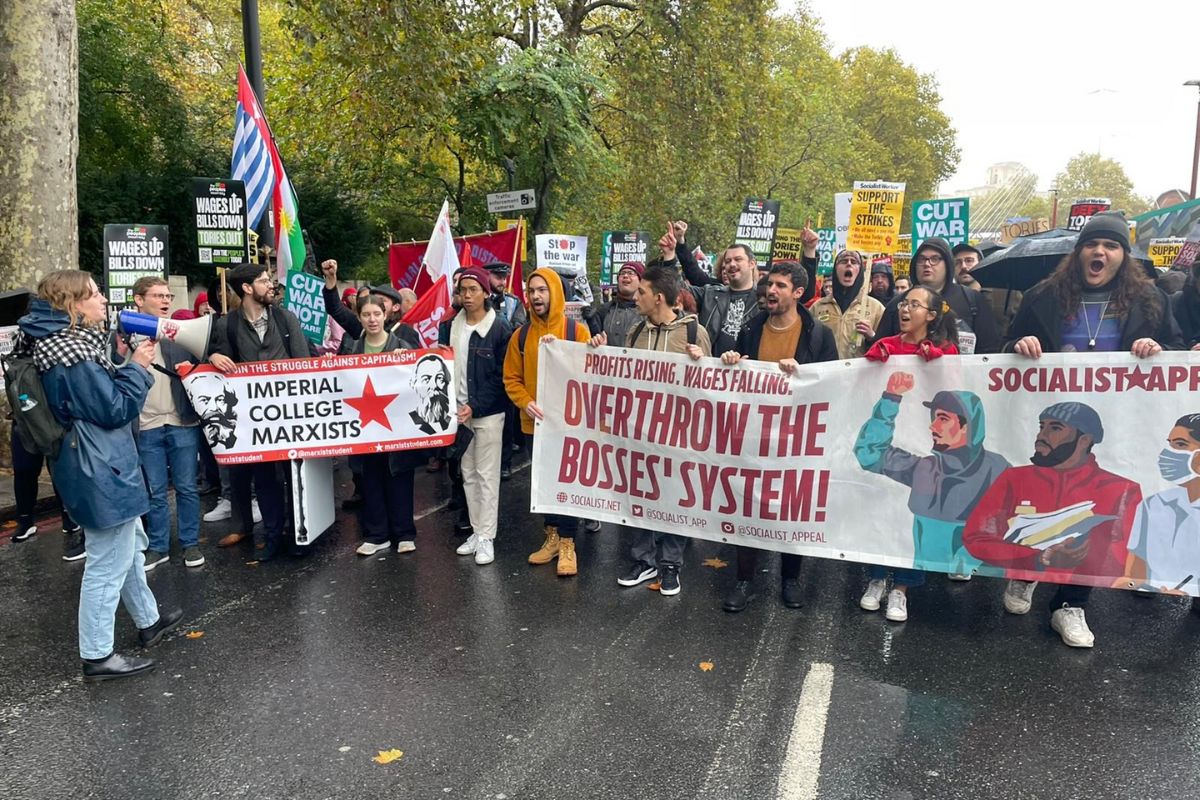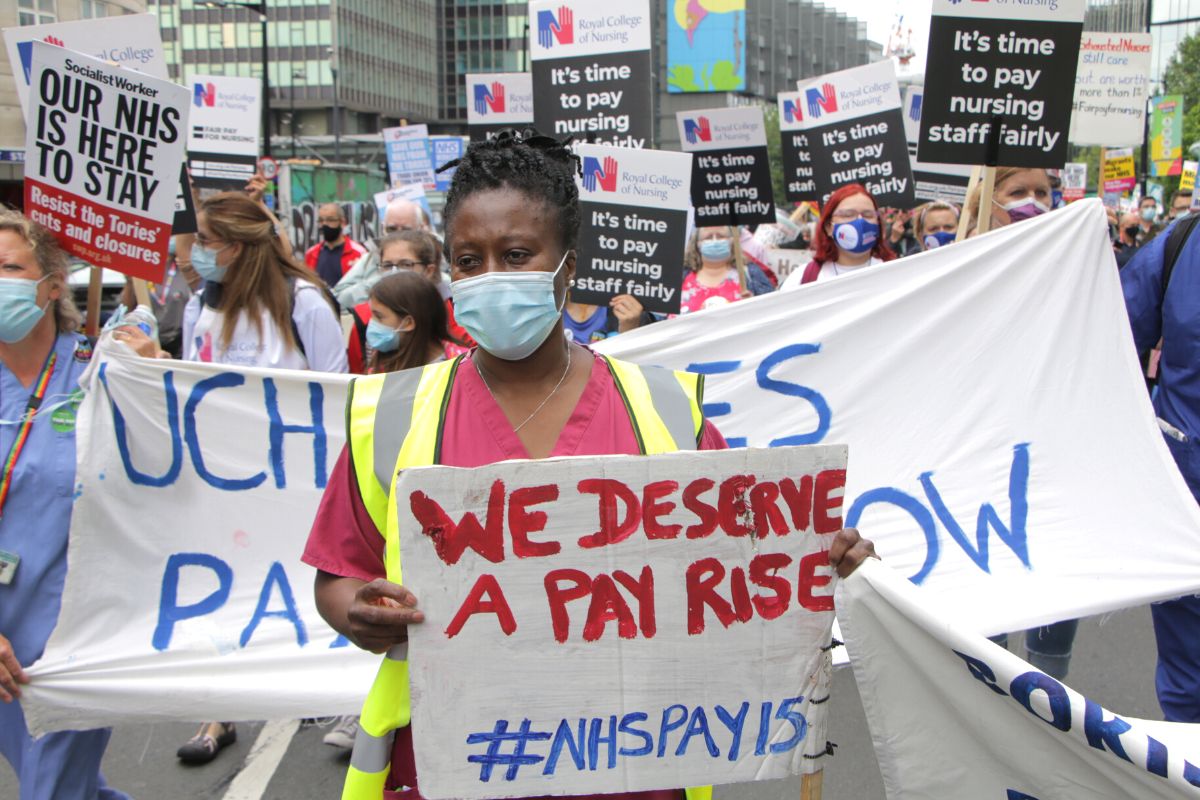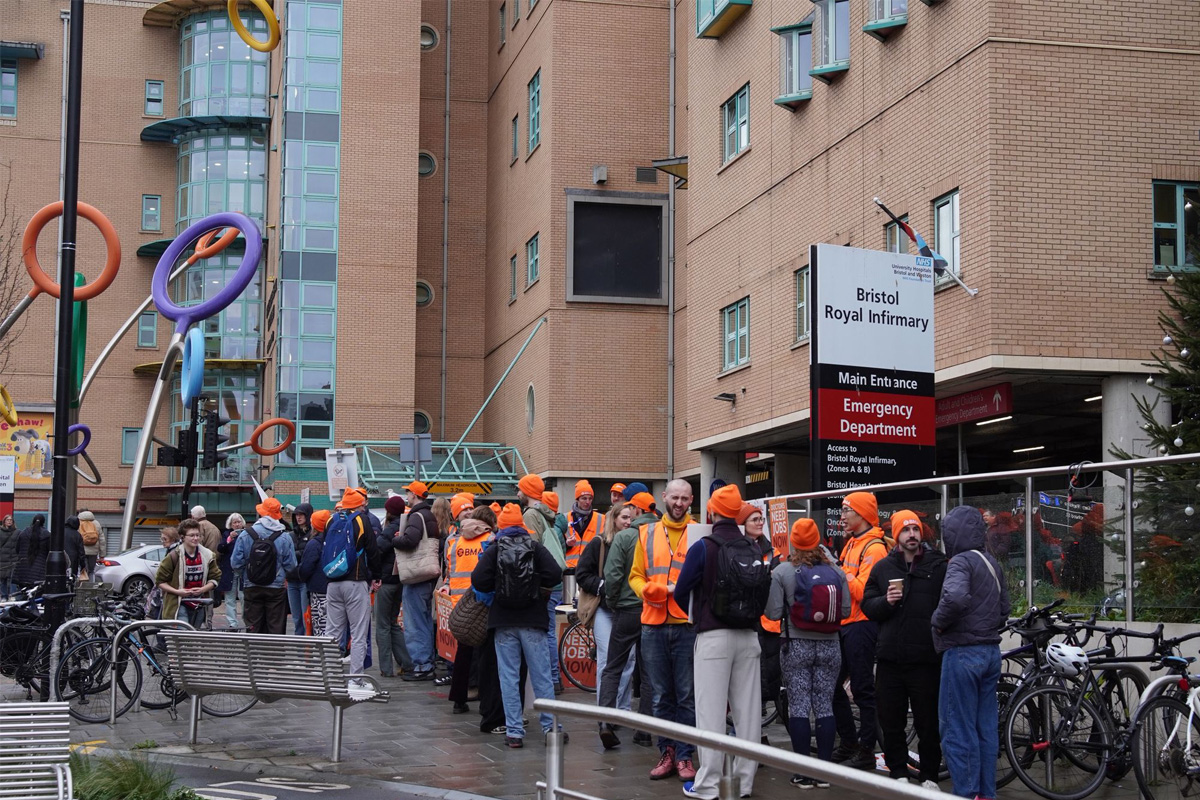The NHS is facing its biggest crisis since its inception. The pandemic brought Britain’s health service to breaking point. And now we’re seeing the pieces start to shatter.
This catastrophe is encapsulated in the enormous healthcare backlog. By the end of August, a record-breaking seven million patients were waiting for treatment.
The special crisis of British capitalism is reflected in the devastation of one of the country’s most cherished institutions.
In order to save the NHS from collapse, the labour movement must unite and fight for clear socialist policies.
Austerity and privatisation

Since coming to power in the wake of the 2008 crash, the Tories have embarked upon a programme of endless austerity. And now billions more in cuts is on its way, as Rishi Sunak looks to ‘balance the books’ at the expense of public services and workers’ wages.
This is not an ideological choice, but a product of the brutal logic of capitalism. The bankers and billionaires have been bailed out, whilst the working class is left with the bill.
Public services have come under constant attack. And despite Tory promises to ‘ring-fence’ it from cuts, the NHS – a publicly-funded health service that is free at the point of use; dedicated to serving society’s needs, not the capitalists’ profits – has been in the firing line throughout the last decade.
All the while, the Tories have further opened up the NHS to parasitic investors. Consequently, it is now estimated that 27% of the government’s healthcare budget goes towards the private sector.
These vultures, like all capitalists, are only interested in turning a profit. And this means driving down costs by attacking jobs, pay, and conditions, whilst also charging patients (‘customers’) for procedures and services that were previously provided for free.
The overall result is an overworked and underpaid workforce, which cannot keep up with the ever-increasing demands required of the NHS.
Ready to explode
This is reflecting itself at all levels of the health service. On the frontlines, in A&E, the proportion of patients seen within four hours has dropped to 56.9%. At the same time, 60% of hospital admissions deemed ‘medically fit for discharge’ cannot be moved due a lack of adequate social care.
This is exactly the situation at the hospital I work at. On one recent night shift, we were informed that ambulances were having to dump patients at the doors of A&E, as there were no beds throughout the entire hospital.
This is only the tip of the iceberg though.
Given this environment, it is no surprise that a record 40,000 nurses have left the NHS over the past year; or that two-out-of-five senior doctors are planning on leaving the profession by the end of the year.
To make matters worse, hospitals are due to spend £2 million extra per month on heating, due to soaring energy prices.
And as Rory Deighton, senior acute lead at the NHS Confederation, has highlighted: “The gap in funding from rising inflation will either have to be made up by fewer staff being employed, longer waiting times for care, or other areas of patient care being cut back.”
Layer upon layer of dynamite is being planted into every crevice of the health service. It’s only a matter of time before it explodes.
Workers mobilise

None of this has gone unnoticed within the ranks of NHS staff, however.
Today, the Royal College of Nurses (RCN) announced that its members will be taking part in the union’s first UK-wide walkout, covering more than half of Britain’s hospitals, following a vote in favour of action over pay.
The nurses could soon be joined on picket lines by a range of other colleagues in the NHS, with Unite the Union balloting 100,000 members across the health sector in England and Wales, and Unison balloting its 400,000 health members.
“The strike across the NHS is widening because our members have had enough,” stated Colenzo Jarrett-Thorpe, Unite’s national officer for healthcare workers. “They are watching the NHS that they have given their lives to fall apart in front of their eyes because of 12 years of Tory cuts. And the truth is that they cannot afford to do the job anymore, yet this government wants to cut their pay further.”
Similarly, the British Medical Association (BMA) is also launching a strike vote amongst junior doctors in January. And ambulance drivers in the GMB and Unite unions are currently weighing up taking industrial action over pay.
Coordinated action

With both the Tories and Labour talking about ‘fiscal discipline’ and ‘difficult decisions’, it is clear that cuts, cuts, and more cuts are on the order of the day.
At the same time, health workers – like the rest of the trade union movement – are correctly coming to the conclusion that politely asking for crumbs will not suffice. The lesson of recent strikes and struggles is clear: militancy pays.
The Tories and their media mouthpieces will attempt to demonise and criminalise striking public sector workers, as they have done with those taking action in the rail and mail sectors.
There are talks of running the NHS at minimum staffing levels during the strikes. This would completely undermine the bargaining power of workers.
To counteract the establishment’s smears and attacks, it is vital that nurses, doctors, and other healthcare workers coordinate action to produce the greatest impact.
And with workers in schools, universities, and the civil service also moving to strike, the potential for mass united action across the public sector is clear.
This points the way forward in the fight to defend the NHS and to end all austerity. Workers’ greatest strength lies in their unity.
Save our NHS!
But the fightback shouldn’t stop there. This struggle is not just about pay and conditions – it is about the fate of the entire NHS.
Under capitalism, a properly-funded, public, universal healthcare system is increasingly becoming a pipedream.
To save our NHS, therefore, the labour movement must mobilise and organise around a bold socialist programme:
- To reverse privatisation and outsourcing, and bring all staff and services back in-house.
- For a union-led mass recruitment drive, on the basis of inflation-busting pay and a reduction in the working week.
- To expropriate the big banks and major monopolies, without compensation, to provide the necessary funding.
- To put workers – not profiteers and bureaucrats – in control, to provide a properly functioning health and social care system, catering for need, not greed.






